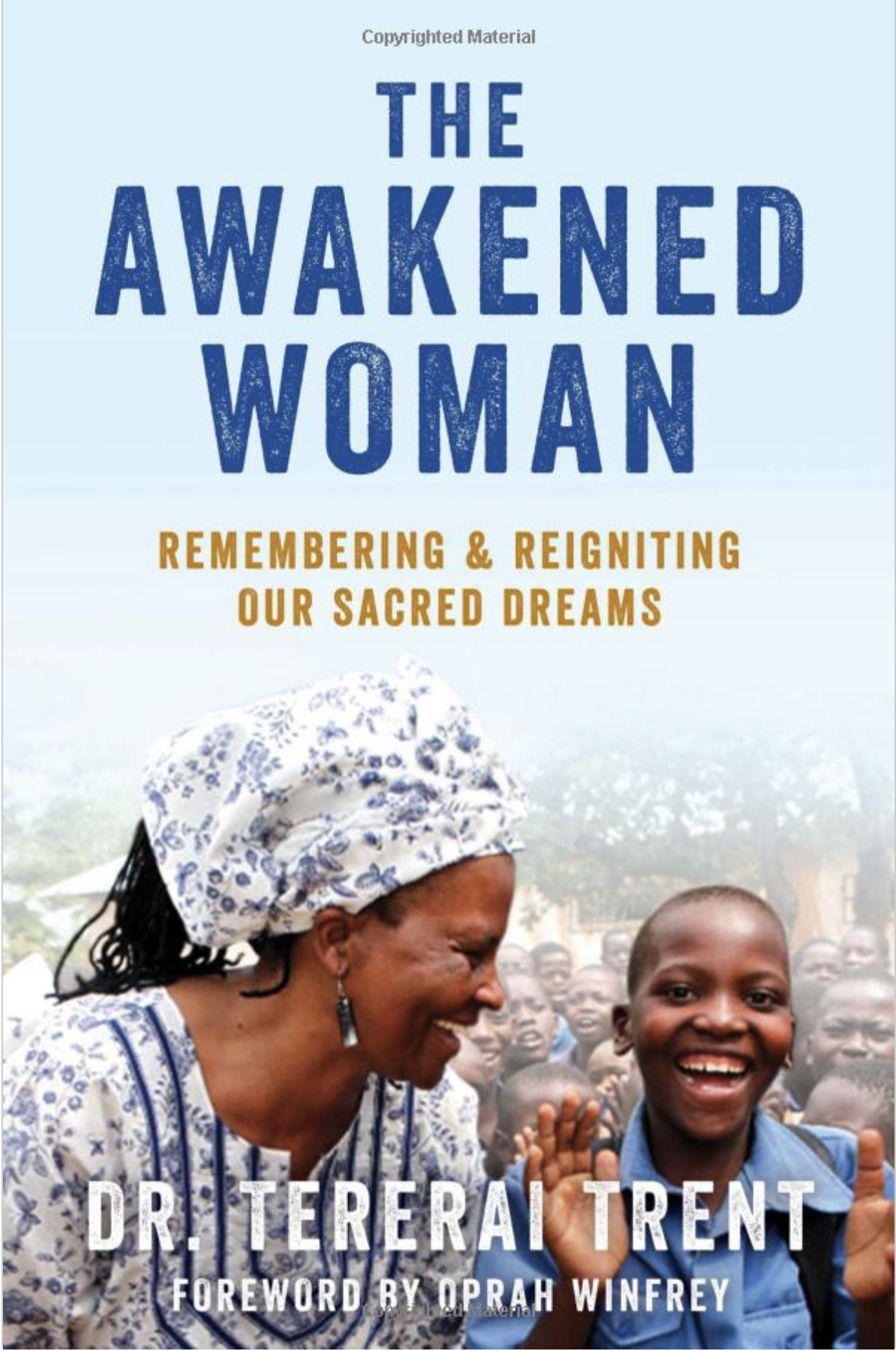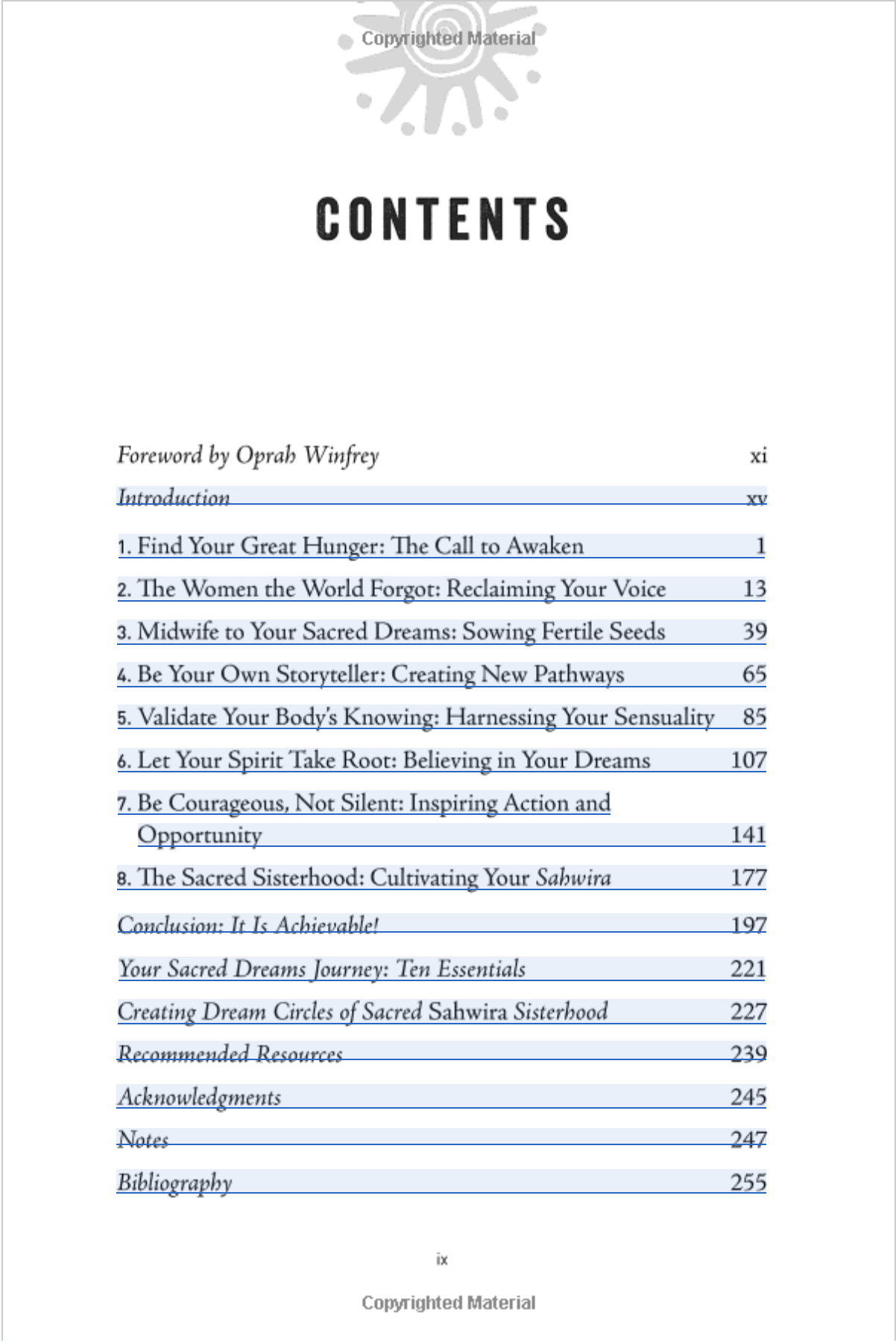The Awakened Woman: Intersectional Soul Wounds in Social Justice Advocacy
“Soul Wounds” is a phrase made up by the village grandmother of a Zimbabwean woman who now goes by Dr. Trent. Reading and reflecting on Dr. Tererai Trent’s Book “The Awakened Woman: A Guide for Remembering and Igniting Your Sacred Dreams” caused me to reflect on all of the Black and African women leading injustice and advocacy work here in the United States and globally.
Dr. Trent reminds us of research that is now demonstrating the way our DNA carries the physical, emotional and spiritual trauma of our ancestors, our parents, grandparents, and great grand-parents. Imagine that, our ancestors were able to name truths that science is only now recognizing as truth. Truth is, women have long been the carriers of this trauma because of societal structures that have historically and globally minimized the volume of a woman’s voice.
But what her book doesn’t go into great depth in the fact that not all women have carried this burden in equal weight. Black women across the diaspora have had soul wounds unseen and living in the shadows of family, political, societal and economic histories for generations after generations. As a big fan of Dr. Kimberle Crenshaw’s work on intersectionality, this book gave me ideas about how Black women leading the charge, specifically for social justice advocacy work, across the globe can move toward a more inclusive framework for the existence of these Soul Wounds to include the experiences of women across the diaspora.
In the United States, history has revealed the ugly truths and disconnects around white feminism; a refusal to recognize the nuances of the experience of Black women and a tone-deaf approach to the other forms of oppression that are unfamiliar to the experience of white women.
There’s so much power in the collective storytelling of Black and African women in a world that worked so hard to divide us. Although we’ve tried, we now know It’s nearly impossible to do this work in white feminist movements.
“Studio Be” Art Museum in New Orleans.
The reality of our Soul Wounds is that they are tied to so much more than just our experiences as women. If you’re African living in the United States, you know that our ancestors and immediate family members probably did not and do not experience slavery, Jim Crow and Mass incarceration trauma in the way that Black/African-Americans in the United States and parts of Latin and Central America have. Yet, many of our ancestors did and continue to hold trauma from colonization and war. People in the anti-racism (or racial justice) and decolonization movement spaces can probably recognize that both slavery and colonization are rooted in white supremacy and yet within that lie other mechanisms of oppression that black women who have lived or carry these histories have in common that we can’t continue to ignore.
Although there are important and critical distinctions between Western feminism and African feminism, Western colonialism and African colonialism; if we’re talking about empowering women, it has to be through our collective empowerment. We have to shift our perspective around how our existence as Black women across the diaspora is burdened with similar forms of oppression at the intersection of race, sex, sexual orientation, gender identity, traditionally, etc.
Like Dr. Tererai, I was born a Zimbabwean girl with big dreams, created by me and fostered by my parents’ tradition of success that carried me through into my career. My intersectional identity holds a story of a 1.5 generation immigrant, Black, African, woman. Although many would like to categorize me as from one place or another, I was raised in the United States, so I identify with the modern realities of the Black American experience. I chose to do the work I do centered on racial justice because it is an all-inclusive issue that speaks to the many roots of the wounds my ancestors carried, those I carry with me in my identity now and those that will impact generations to come. Through this work and this book, I learned something that now feels so simple: Black/African women in the U.S., we cannot heal the injustices of this world without uplifting each other to help name, recognize and see our intersectional soul wounds as connected to how we bring meaning, power, and purpose in the work we do with the issues we care most about. Much like the systemic injustices we see in our work, these wounds take time to recognize and to heal. Not only are they our realities but they serve as tools to help inform our approach to this work, to womanhood, to sisterhood, to motherhood. Tools that can guide us in achieving each of our sacred visions of being our ancestors wildest and most sacred dreams.
“Studio Be” Art Museum in New Orleans.
Like Dr. Trent, I want to be careful to name that Black women are not inherently wounded or broken. I want to leave y’all with 3 simple practices I have started incorporating in my daily life to keep me grounded in my soul wounds and “Symbolically Whole”, as a result of reading The Awakened Women.
Getting mentally, emotionally and spiritually naked—being vulnerable is a prerequisite to connection. Many of us were taught the opposite of this as children. But I mean good in not just our connection with others but the connection to ourselves, our realities and truths. (Writing my ideas about the world like this is really interrupting my fear of vulnerability)
Making space for affinity groups with other women of color—Do this with purpose. Save and make spaces in your life for the different pieces of your intersectional identities. Sister circles, affinity groups, and friendships are a form of self-recognition and relationship building that allows us to connect deeply with our bodies and souls, lift-up our experiences, be heard seen and valued by women with similar stories.
Be present in those moments you feel powerless in your work—What events took place that led you to these feelings? Is there a deeper connection to other truths about your personal life? Analyze these, journal them and come back to them later.


